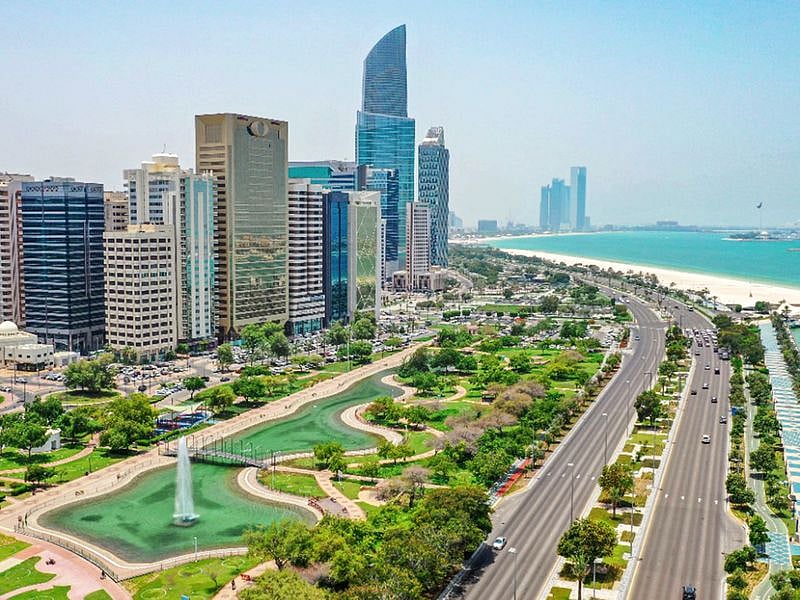Abu Dhabi turns to artificial intelligence to tackle soil salinity crisis
EAD warns that climate change and human activity are worsening salinity across the emirate

Abu Dhabi: The Environment Agency – Abu Dhabi (EAD) has successfully introduced advanced technologies, including artificial intelligence and drone surveillance, to tackle the growing problem of agricultural soil salinity in the emirate.
As part of its soil sustainability programmes, EAD has identified 664 sites across Abu Dhabi, collected and analysed 1,376 soil samples annually, recorded 72,102 soil data entries, produced 36 thematic maps, and tested 35 pollutants.
EAD stressed that soil salinity is one of Abu Dhabi’s major environmental challenges, driven by both natural factors and human activity. With average annual rainfall below 100 millimetres and high evaporation rates, the emirate’s soils are naturally prone to salt build-up. Climate change is expected to worsen the problem, pushing salinity levels even higher.
Climate change adaptation plan
In its report “Climate Change Adaptation Plan for the Environment Sector in Abu Dhabi 2025–2050: Towards a Resilient Future”, EAD highlighted that current farming practices also contribute to soil salinisation. These include the use of saline groundwater for irrigation and traditional flood irrigation, particularly in the Al Dhafra region.
According to the Soil Quality Monitoring Programme, salinity levels vary widely across the emirate. In Al Dhafra, around 60% of surface soil samples fall into the “very high salinity” category (ECe > 40 dS/m).
Causes and impacts
The report linked high salinity to several factors, especially rising groundwater tables and the use of saline water sources for irrigation. While the partial use of desalinated water has helped reduce the impact in some areas, large parts of Abu Dhabi continue to suffer from high salinity, lowering soil fertility and reducing agricultural productivity.
EAD said an integrated management strategy is urgently needed. This includes adopting more efficient irrigation techniques and improving the quality of water used in farming to safeguard agricultural land and ensure long-term productivity.
Soil types in Abu Dhabi
The emirate’s soils are mainly sandy and rich in calcium carbonate. They fall into two classes: Entisols (81.68%) and Aridisols (14.38%). They are typically sandy, calcareous, gypsiferous, saline, saline-gypsiferous, or hard soils—conditions that reflect the region’s arid climate.
Al Ain records higher organic carbon
Overall, Abu Dhabi’s soils contain less than 1% organic matter, limiting water retention and fertility. However, Al Ain recorded the highest levels of organic carbon at 0.57% (20.1 tonnes per hectare), likely due to crop residues and fertiliser use. Higher levels were also noted in livestock farms and palm oases, showing that farming practices can influence soil quality.
Monitoring variations in organic carbon across sites and soil layers, EAD said, is vital for managing sustainability and improving water retention in dry conditions.
Land rehabilitation and innovation
EAD reported that land rehabilitation has expanded reclaimed areas from 133.46 to 378.22 square kilometres. While farming once focused mainly on date palms and drought-resistant crops, new approaches now include sustainable water use and modern technology.
A key initiative is EAD’s soil monitoring project, which combines satellite and drone-based remote sensing with artificial intelligence and machine learning. This enables faster, more accurate data collection to support policies aimed at protecting soil health.
After completing its pilot phase, EAD rolled out the project fully at the end of 2023. For now, it focuses on soil health and quality in Abu Dhabi, but the agency plans to extend the approach to other areas, including marine ecosystems, water quality, and air quality, once proven successful.
Sign up for the Daily Briefing
Get the latest news and updates straight to your inbox
Network Links
GN StoreDownload our app
© Al Nisr Publishing LLC 2026. All rights reserved.